NAS Server Guide
Storage capacity
The storage capacity determines how much data you can store and manage on the NAS server. It is important to assess your storage requirements beforehand to ensure you select a NAS server with adequate capacity.
There are several different options available in the market catering to various storage needs. If you require moderate storage capacity for personal use or a small office, the Synology DS220j with its 6TB (dual drives) maximum storage capacity is a solid choice. For those with more demanding storage needs, the QNAP TS-473 is worth considering, offering a maximum capacity of up to 67TB with Hot-Swappable drives. For larger businesses or professional environments, enterprise-grade NAS servers like the Buffalo TeraStation 5410DN provide up to 128TB capacity, designed for high-performance storage and data-intensive tasks. Keep in mind that the actual usable capacity will be slightly lower due to formatting and redundancy considerations, so factor that into your decision-making process as well.
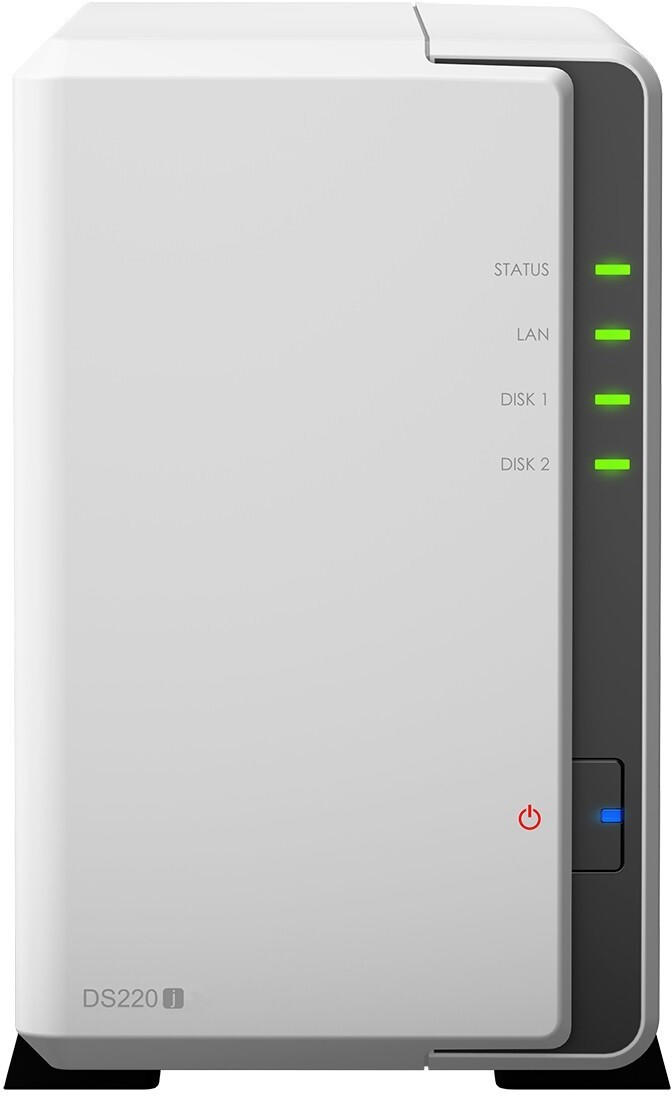
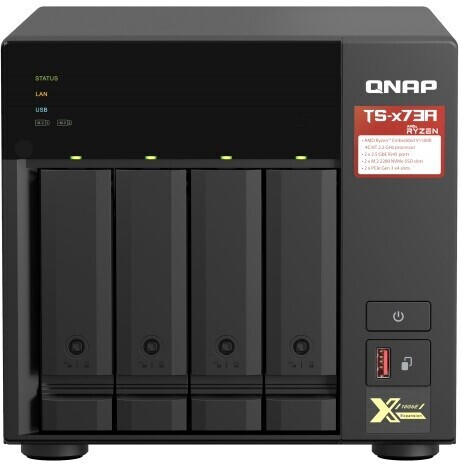
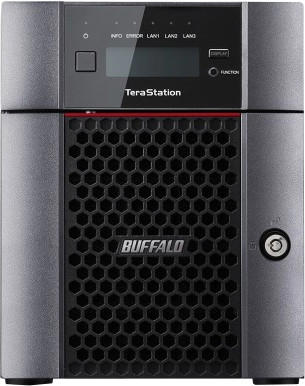
Number of drive bays
The number of drive bays determines how many hard drives or SSDs can be installed within the NAS, which directly relates to the storage capacity and potential data redundancy.
For small-scale NAS solutions, a single-bay NAS like the Synology DS120j or Qnap TS-128a provides adequate storage for home users or small offices. These single-drive models are compact and budget-friendly, making them ideal for personal use where a limited amount of storage is required.
For users with growing storage needs or those who want increased data protection, a multi-bay NAS such as the Synology DS218+ or Qnap TS-251D is more suitable. These 2-bay models offer the flexibility to configure the drives in different RAID configurations or utilize one drive for mirroring the other, providing redundancy and protecting against data loss.
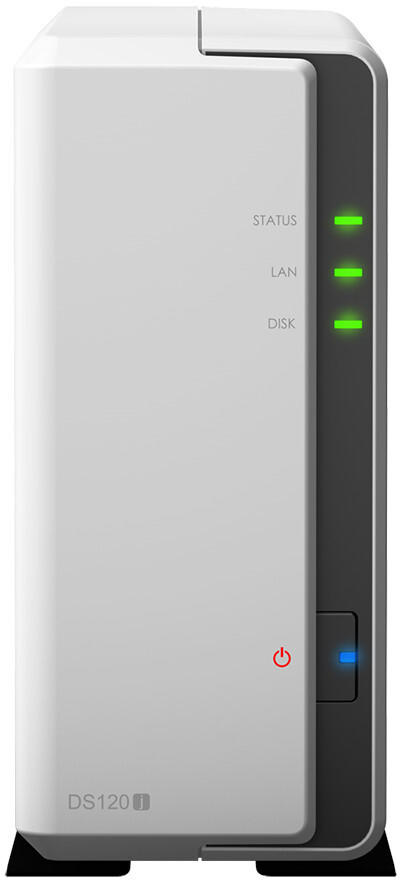

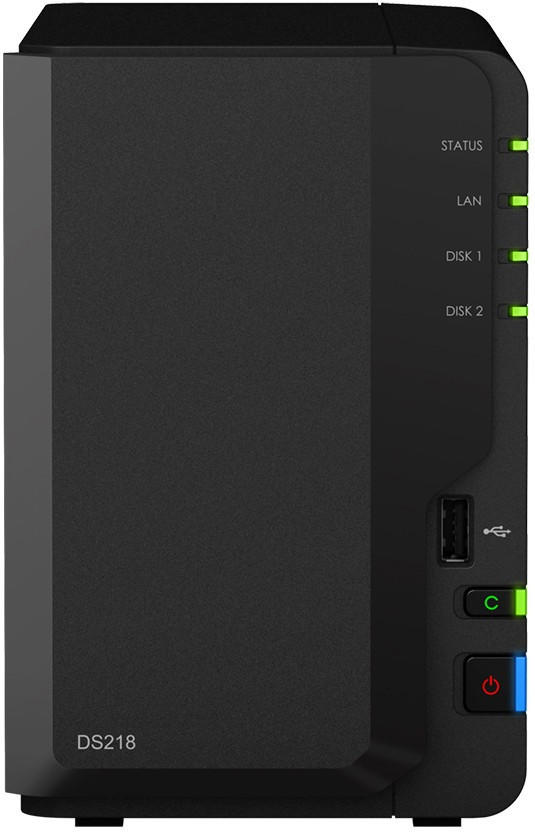
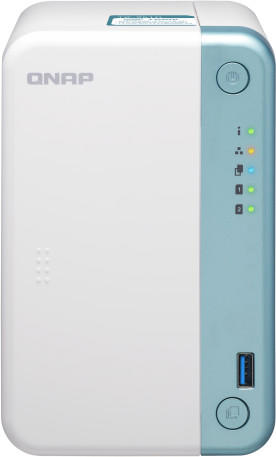
For advanced users or organizations requiring extensive storage space, there are larger multi-bay NAS servers such as the Synology DS920+ or Qnap TS-453D. These models feature four or more drive bays, allowing for higher storage capacity and supporting more advanced RAID configurations, such as RAID 5 or RAID 6, which provide increased data security and better fault tolerance. Ultimately, the number of drive bays should be chosen based on the required storage capacity and level of data protection needed.
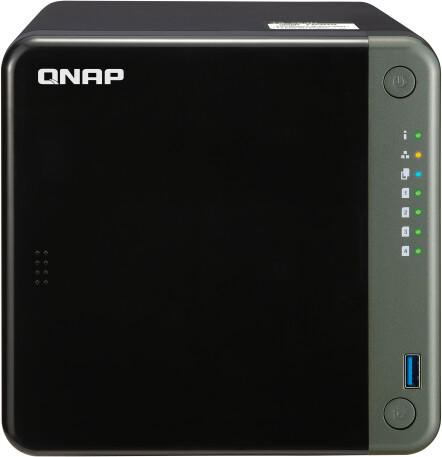
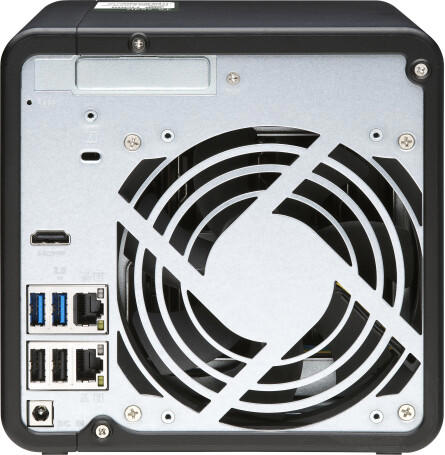
RAID support
RAID (Redundant Array of Independent Disks) allows for data redundancy and helps prevent data loss in case of hard drive failures. When selecting a NAS server with RAID support, it is important to consider the different RAID levels available. The Synology DS920+ is a great option that offers support for RAID levels 0, 1, 5, 6, and 10. It also boasts an Intel Celeron J4125 quad-core processor, 4 GB DDR4 memory, and can handle up to 9 drives (with expansion units). Another viable choice is the QNAP TS-453D, which supports RAID 0, 1, 5, 6, and 10 as well. It features an Intel Celeron J4125 quad-core processor, 4 GB DDR4 memory (expandable up to 8 GB), and can accommodate up to 4 drives. Both of these NAS servers offer excellent RAID support and are suitable for different user needs and budgets.
Group/Segmentation:
High-Performance NAS Servers:
- Asustor Lockerstor 10 Pro - Supports RAID 0, 1, 5, 6, and 10 with an Intel Xeon Quad-Core processor and up to 10 bays for storage.
- Synology DS1821+ - Supports RAID 0, 1, 5, 6, and 10 with an AMD Ryzen quad-core processor and up to 8 bays for storage.
Entry-Level NAS Servers:
- WD My Cloud EX2 Ultra - Supports RAID 0, 1 with a 1.3 GHz dual-core processor and up to 4 bays for storage.
- Buffalo TeraStation 1200D - Supports RAID 0, 1 with a 1.2 GHz dual-core processor and up to 2 bays for storage.
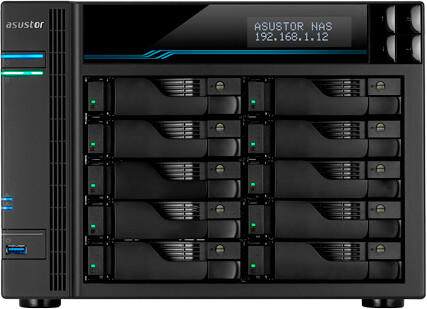
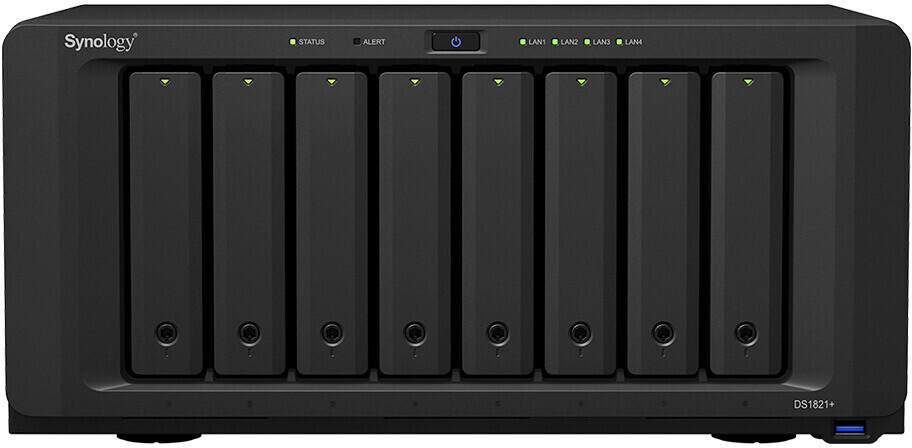
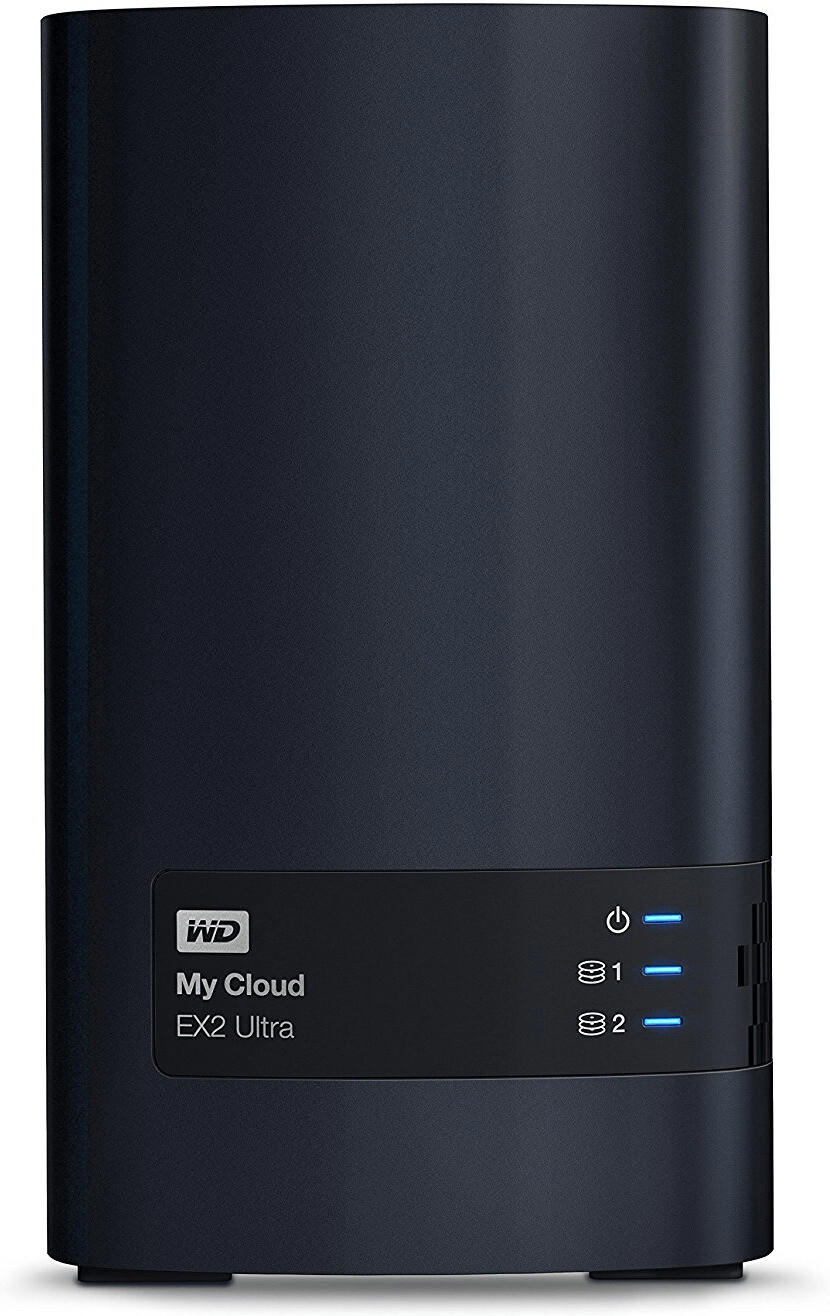
Data transfer speed
It is measured in megabytes per second (MB/s) or gigabit per second (Gbps) and varies based on the NAS server's hardware capabilities. For individuals or small businesses that require high-speed data transfers, models like the Synology DiskStation DS220+ and Western Digital My Cloud EX2 Ultra are suitable choices. With a data transfer speed of up to 225 MB/s and 117 MB/s, respectively, these NAS servers can efficiently handle large file transfers, stream media seamlessly, and support multiple users simultaneously. For users seeking even higher speeds, enterprise-grade NAS servers like the Qnap TVS-872XT-i5-16G or Drobo 5N2 offer exceptional data transfer speeds of up to 774 MB/s and 190 MB/s, respectively, making them ideal for intensive tasks such as 4K video editing or running virtual machines.

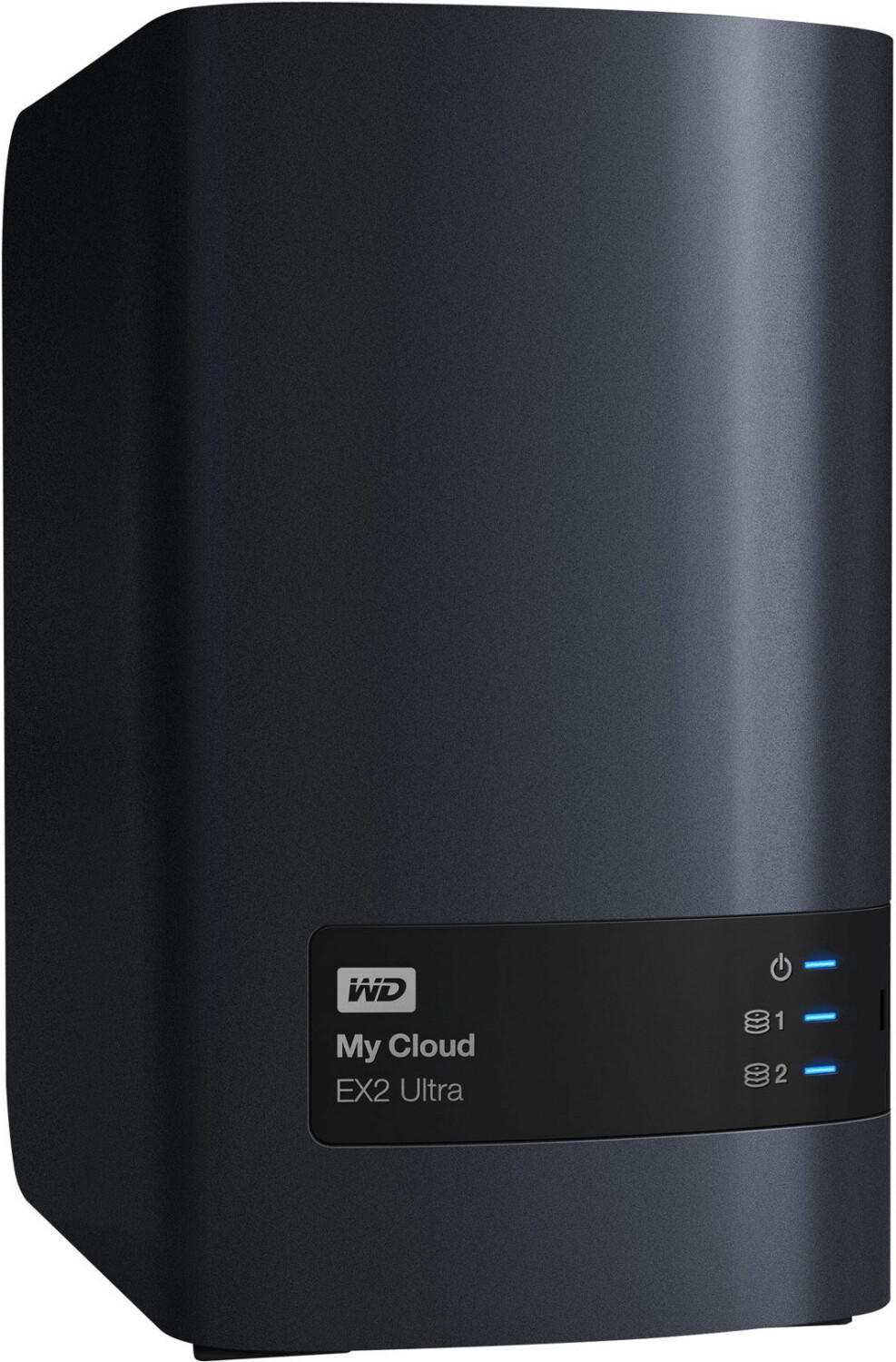
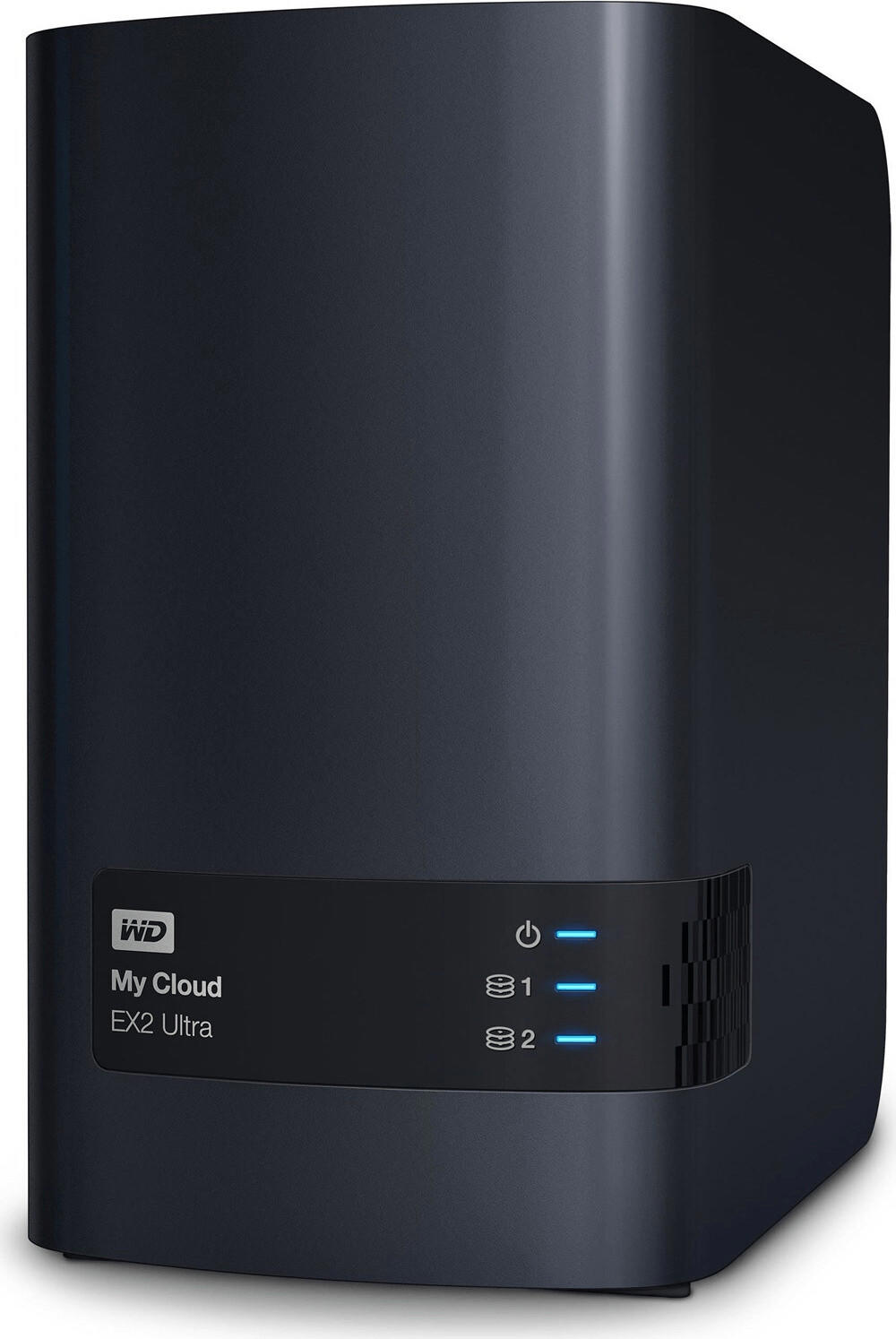
Processor type and speed
The processor is responsible for handling the tasks and operations of the server, so it is essential to choose one that offers optimal performance.
Some popular NAS servers come with powerful processors, such as the Synology DS918+ equipped with an Intel Celeron J3455 quad-core 1.5 GHz processor and 4GB of DDR3L memory. For more demanding workloads, the Qnap TS-251+ is a notable choice with its Intel Celeron Quad-Core 2.0GHz processor and 8GB DDR3L memory.
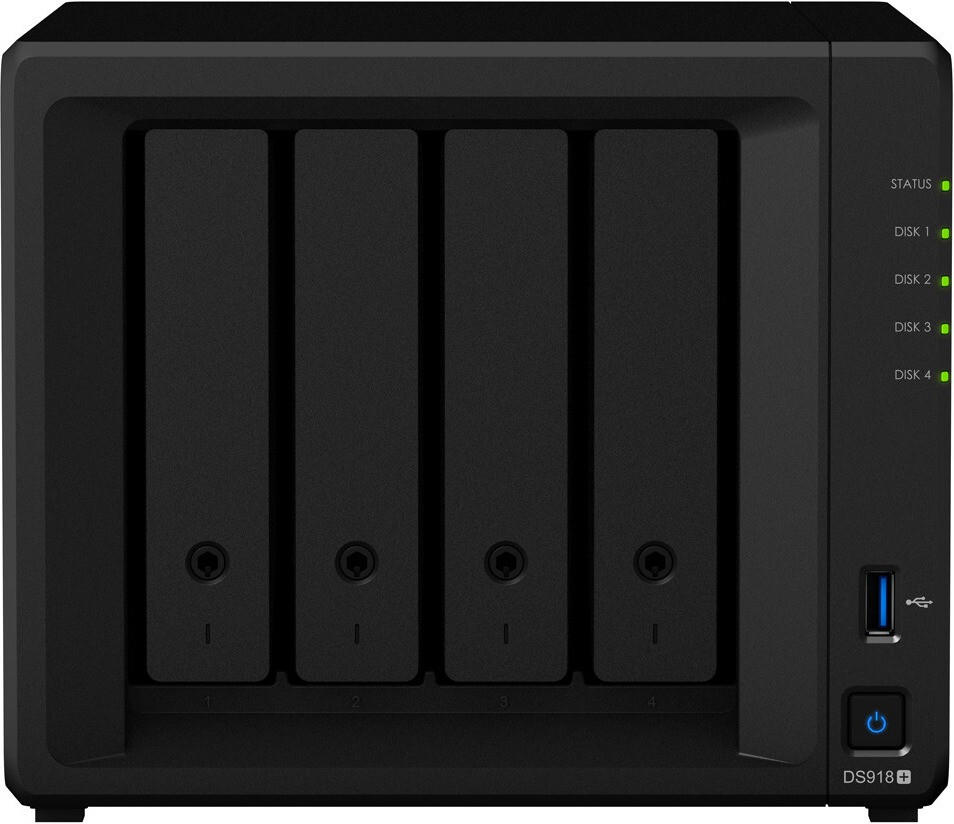
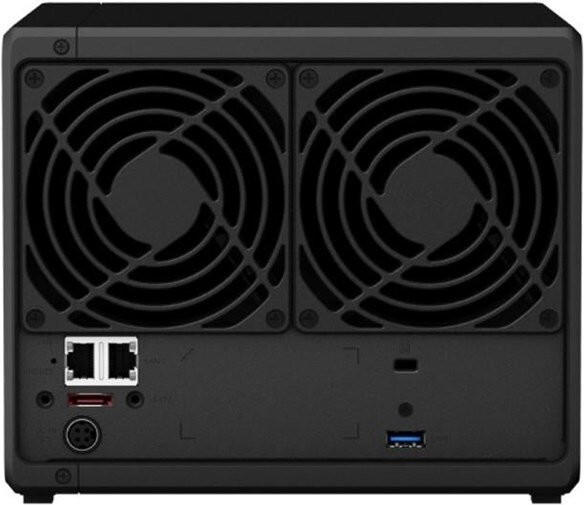
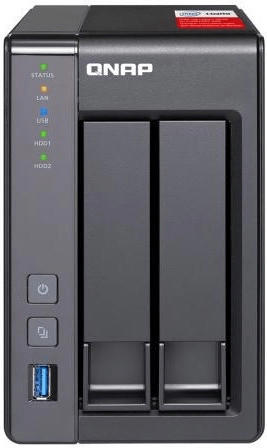
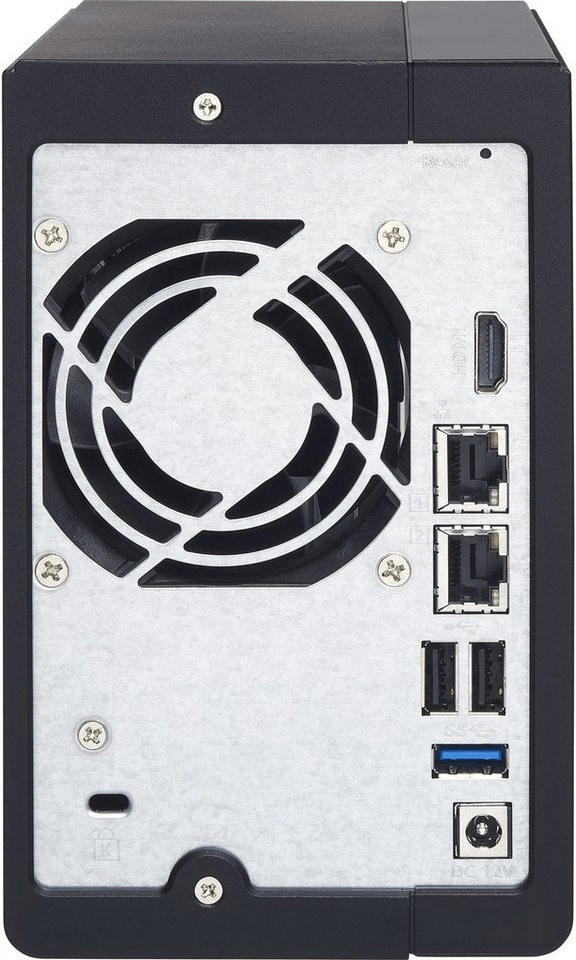
Different segments of NAS servers are available for different specific needs, such as entry-level, mid-range, and high-performance devices. In the entry-level segment, products like the Western Digital My Cloud EX2 Ultra with its Marvell ARMADA 385 1.3 GHz dual-core processor stand out. In the mid-range segment, the Asustor AS5202T offers excellent value for money with its Intel Celeron Gemini Lake J4005 dual-core 2.0GHz processor. For those seeking ultimate performance, high-end NAS servers like the QNAP TVS-1282T3 can be a tempting option, boasting an Intel Core i7 quad-core 3.6 GHz processor with Turbo Boost up to 4.2 GHz for lightning-fast data processing.


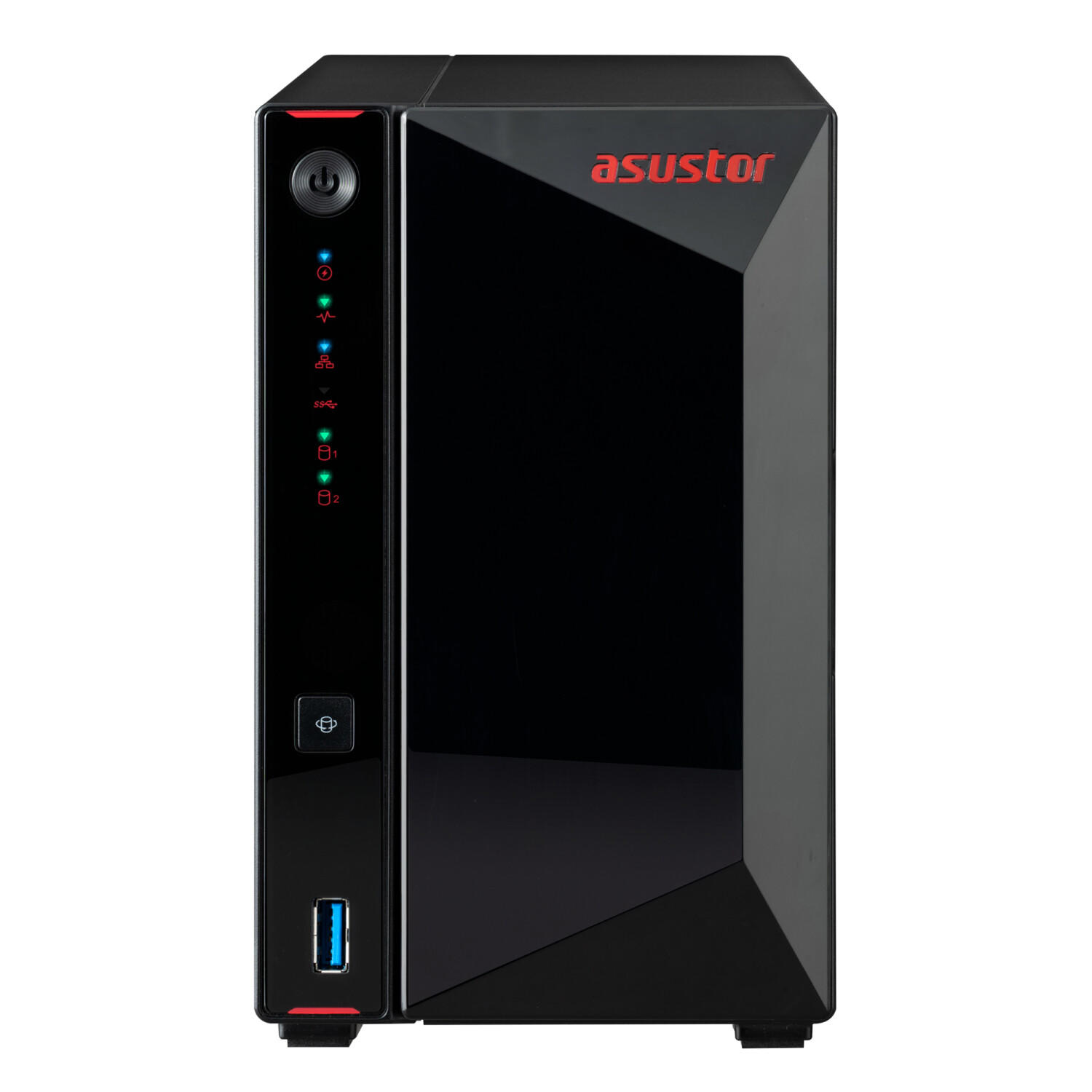
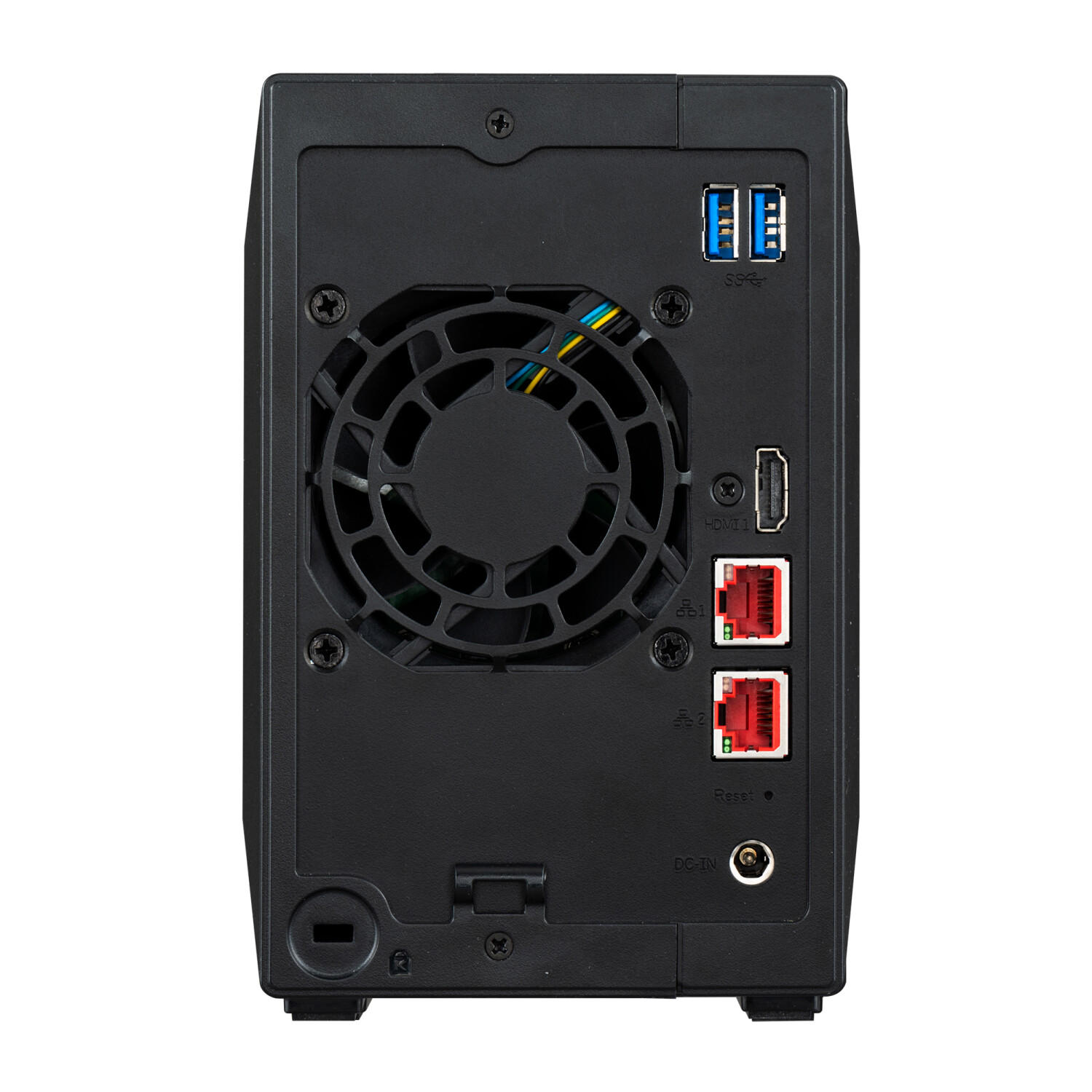
RAM capacity
The RAM (Random Access Memory) plays a crucial role in facilitating efficient data processing and access. Depending on the specific requirements and usage, it is advisable to opt for a NAS Server with sufficient RAM capacity. For example, the Synology DiskStation DS920+ is an excellent choice with its 4 GB DDR4 RAM, making it ideal for small to medium-sized businesses or home users. Another option to consider is the QNAP TS-453D, which offers 4 GB or 8 GB DDR4 RAM options, catering to different needs. Additionally, high-end NAS servers like the Synology DS1821+ and QNAP TS-H1283XU-RP provide expandable RAM slots, allowing users to customize and increase RAM capacity as their data storage requirements grow over time.

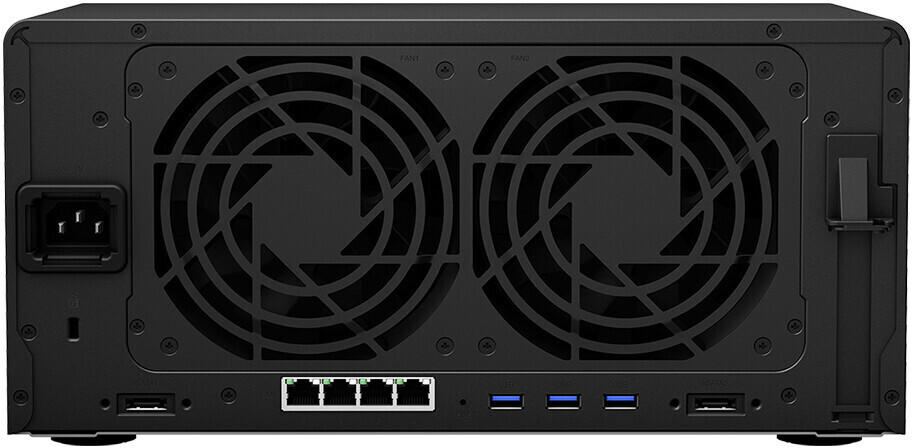


Number of network ports
The number of network ports determines how many simultaneous connections you can establish with your server, allowing for greater flexibility and scalability. For small to medium-sized setups, a NAS server with two network ports might suffice. An excellent example of such a NAS is the Synology DS918+, which features two 1GbE network ports for efficient data transfer and redundancy. However, for more demanding environments or businesses, a NAS server with four or more network ports would be more suitable. The Qnap TS-873U-RP is a robust choice that provides four 1GbE ports, while the Synology DS1618+ takes it a step further with four 1GbE ports (link aggregation support) and the option to add a high-speed 10GbE network card. Ultimately, it's important to assess your network requirements and future needs to choose the right NAS server with the appropriate number of network ports.


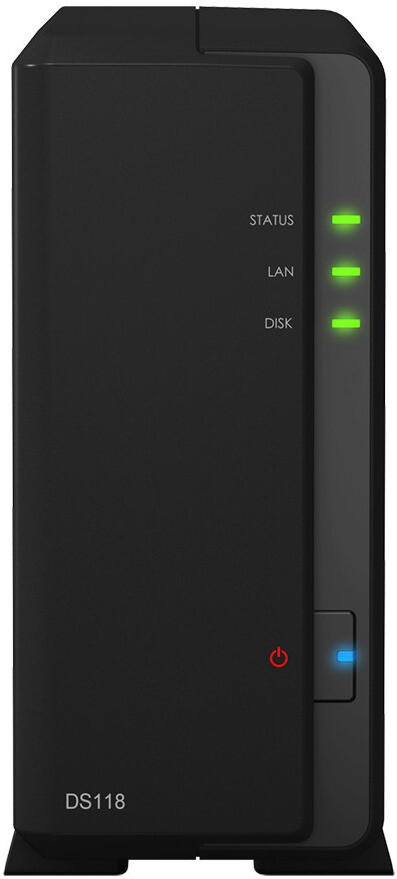
USB ports
It is important to consider the number and type of USB ports available on the NAS device. For instance, the Synology DS420+ is a popular NAS server featuring two USB 3.0 ports, providing high-speed connectivity for external drives or printers. Additionally, it offers two eSATA ports, allowing the connection of external hard drives for increased storage. On the other hand, the QNAP TS-453D falls within a higher-end segment, offering one USB 3.2 Gen 1 Type-A and two USB 3.2 Gen 2 Type-C ports, which offer even faster data transfer rates. For those in need of a more budget-friendly option, the Buffalo LinkStation 220 provides two USB 2.0 ports useful for connecting external hard drives or printers.
Expansion slots
One popular type of expansion slot is the PCIe slot, which allows for high-speed expansion cards to be installed, such as 10GbE network adapters or dedicated RAID controllers. An excellent example of a NAS server with PCIe expansion slots is the Synology DS1817+. With its two PCIe slots, it provides flexibility for users to install a range of additional components based on their specific needs, such as a dual M.2 SSD adapter card for caching acceleration or a 10GbE network card for faster data transfers.
Another type is the USB 3.0 ports available on NAS servers like the Western Digital My Cloud EX2 Ultra. These ports allow for easy expansion with external storage devices or peripheral devices such as printers or backup power supplies. Furthermore, NAS servers like the QNAP TS-453Be come equipped with a built-in Thunderbolt 3 port, offering lightning-fast data transfer speeds and the ability to connect to high-performance devices such as 4K displays. It is essential to assess your needs and select a NAS server that provides the appropriate types and sufficient number of expansion slots for your specific requirements.




Operating system compatibility
Before making a purchase, it is crucial to ensure that the NAS server supports the operating system you are planning to use. Some NAS servers are only compatible with specific operating systems, limiting the usability and potential integration with your existing infrastructure. For instance, the Synology DS1520+ NAS server is compatible with a wide range of operating systems including Windows, macOS, and Linux. It also supports popular file systems such as Btrfs, which offers advanced data integrity and snapshot features. Another option is the QNAP TS-453D, which is also compatible with various operating systems and offers support for the Qtier™ automatic tiering technology for optimized storage efficiency.
It is worth mentioning that NAS servers can be categorized into two segments based on operating system compatibility: those designed for Windows users and those aimed at Mac users. In the Windows segment, products like Asustor AS5304T and Buffalo TeraStation 5410DN offer robust compatibility with Windows operating systems. On the other hand, for Mac users, NAS servers like the WD My Cloud EX4100 and Promise Apollo Cloud 2 DUO have seamless integration with macOS. These options ensure that regardless of your operating system preference, there are NAS servers available to meet your needs.
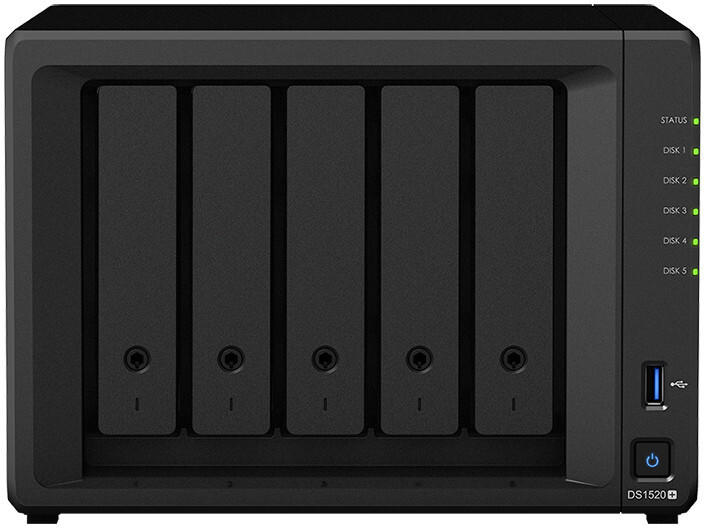
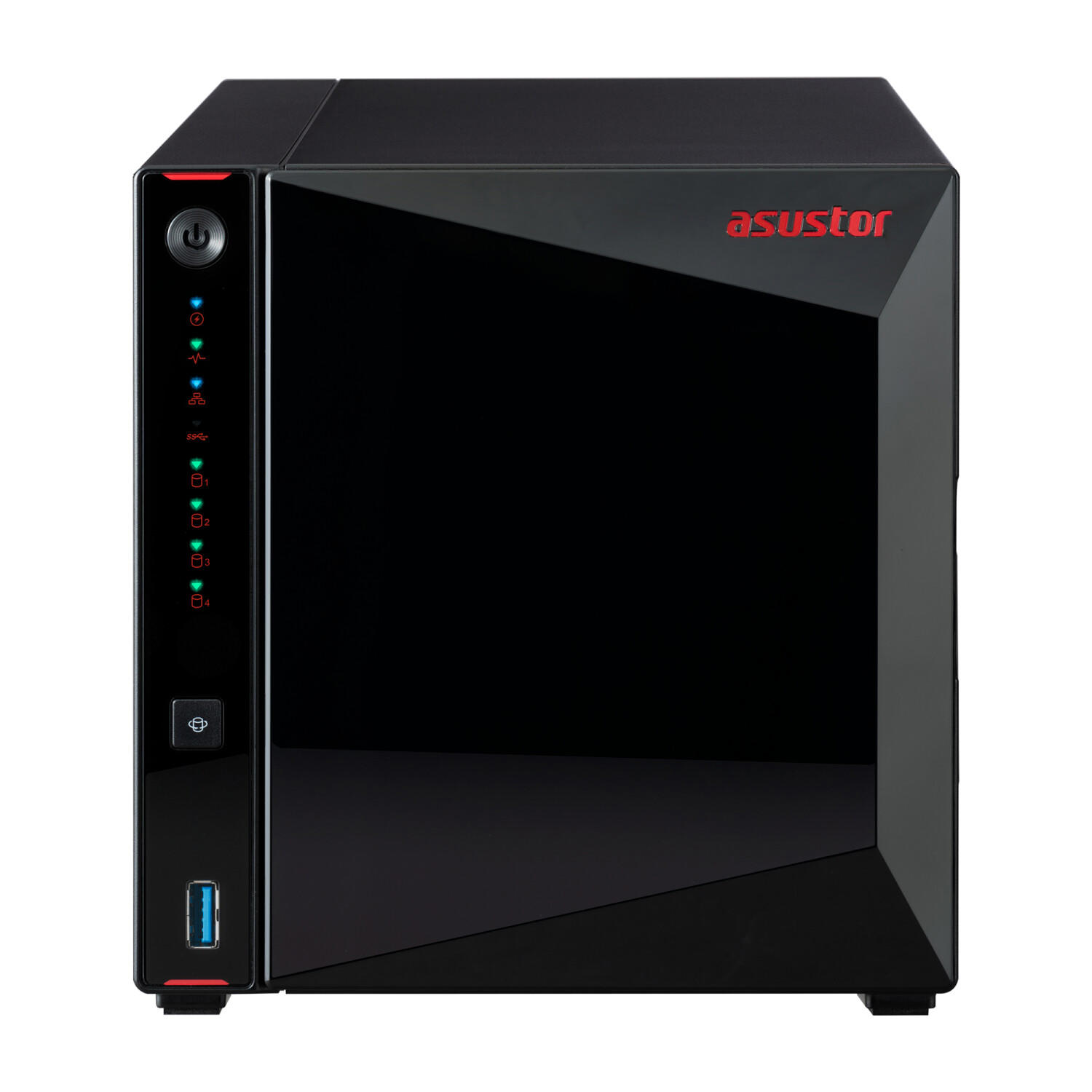

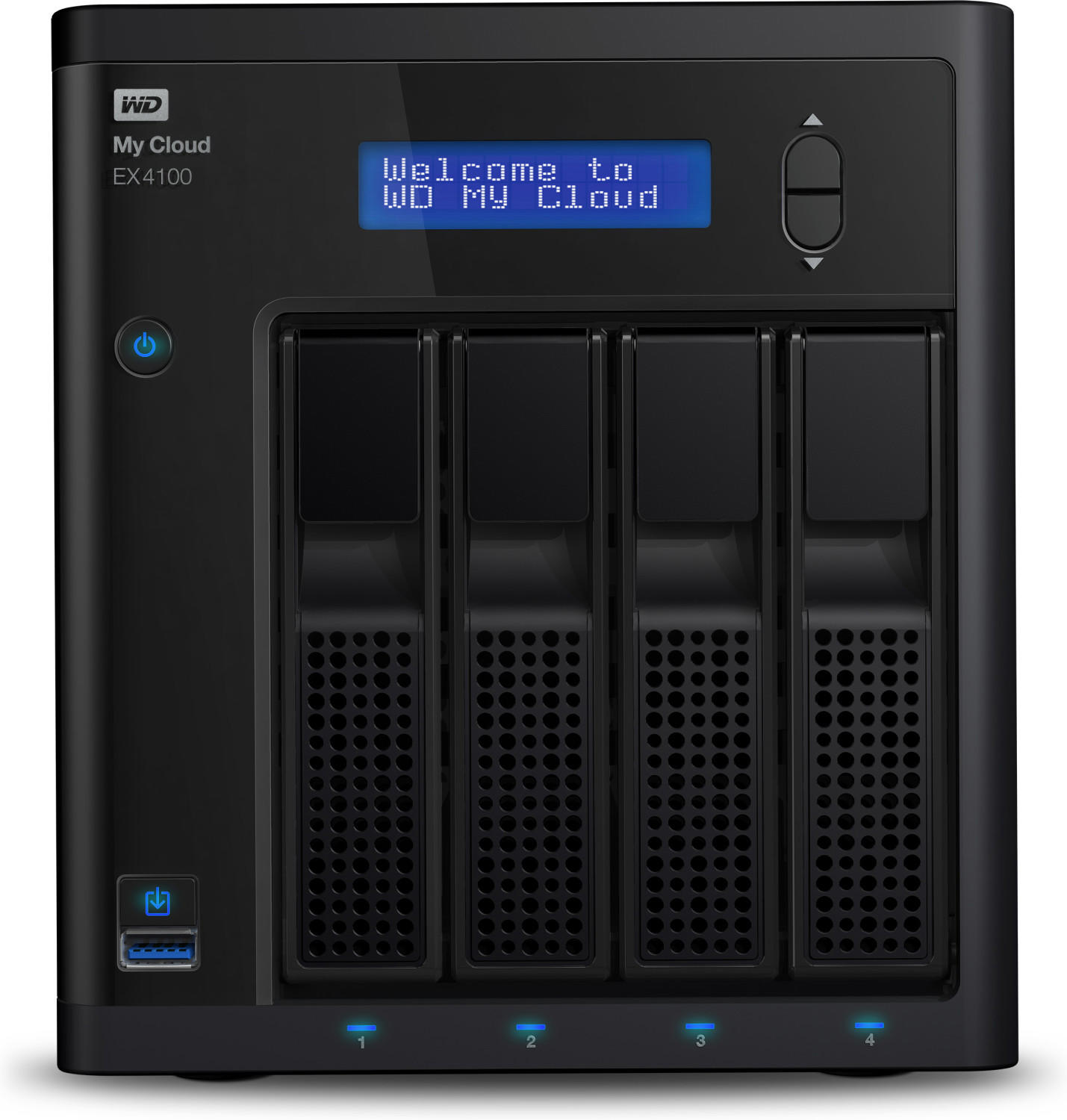
Supported file systems
The file system determines how data is organized and stored on the NAS server. Some common file systems supported by NAS servers include NTFS, FAT/EXFAT, and EXT4. The NTFS file system is commonly used in Windows environments as it supports larger file sizes and better security features. Examples of NAS servers that support NTFS include the Synology DS920+ and the QNAP TS-453D. On the other hand, the FAT/EXFAT file systems are more widely supported across different operating systems and are suitable for sharing files between different devices. NAS servers such as the Western Digital My Cloud EX2 Ultra and the ASUSTOR AS1002T support the FAT file system. Additionally, the EXT4 file system is commonly used in Linux environments for its performance and reliability. NAS servers like the Buffalo TeraStation 3210DN and the Asustor AS6604T are compatible with the EXT4 file system.

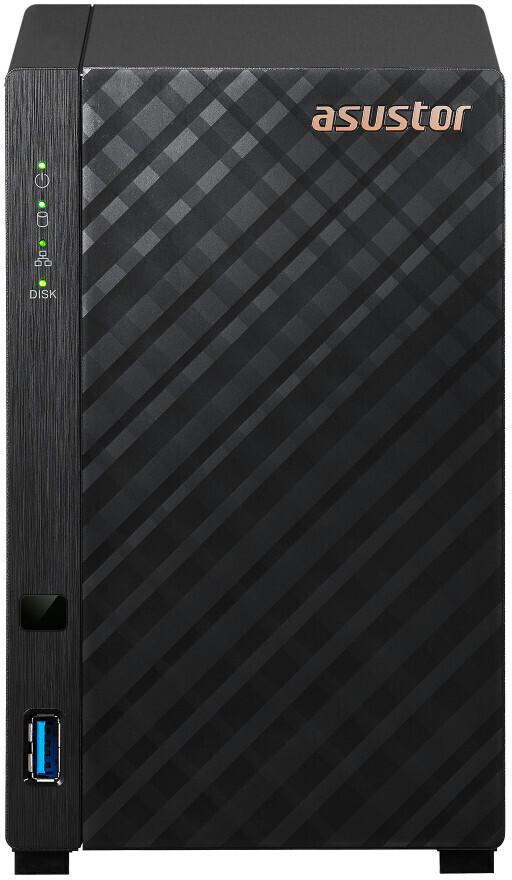
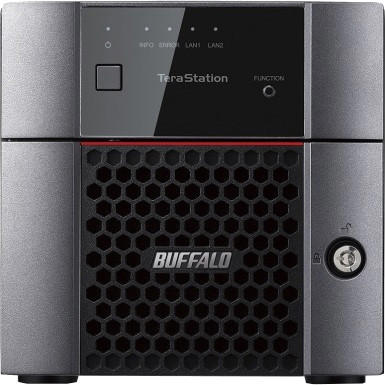
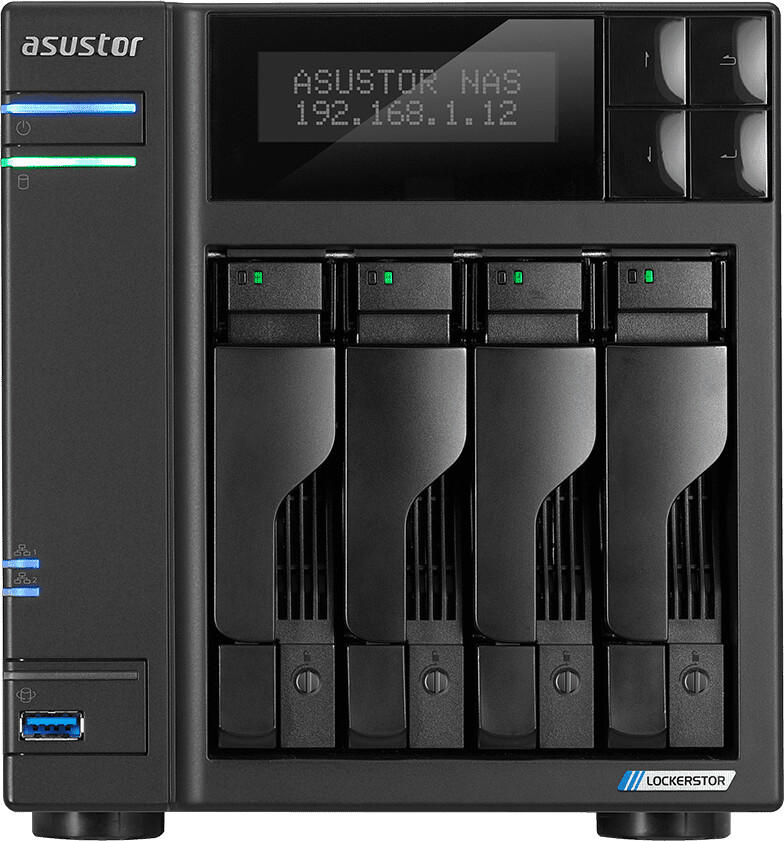
Backup and sync capabilities
A reliable NAS should offer scheduled or automatic backups to protect your data from loss or corruption. Additionally, the ability to sync files across multiple devices is also crucial for seamless access and collaboration.
For small to medium-sized businesses, the Synology DiskStation DS920+ is an excellent choice. It supports the HFS+ file system, which is compatible with both Mac and Windows computers, allowing easy synchronization and backup of files. With its flexible scalability, powerful 4-core processor, and 2GB DDR4 RAM, the DS920+ offers fast and reliable performance in handling backups and syncing.
For home users or individuals seeking a budget-friendly option, the WD My Cloud Home is worth considering. It provides an effortless and centralized backup solution with automatic file backups from all your devices to a single location. The My Cloud Home also offers a mobile app for convenient file access and sharing on the go.


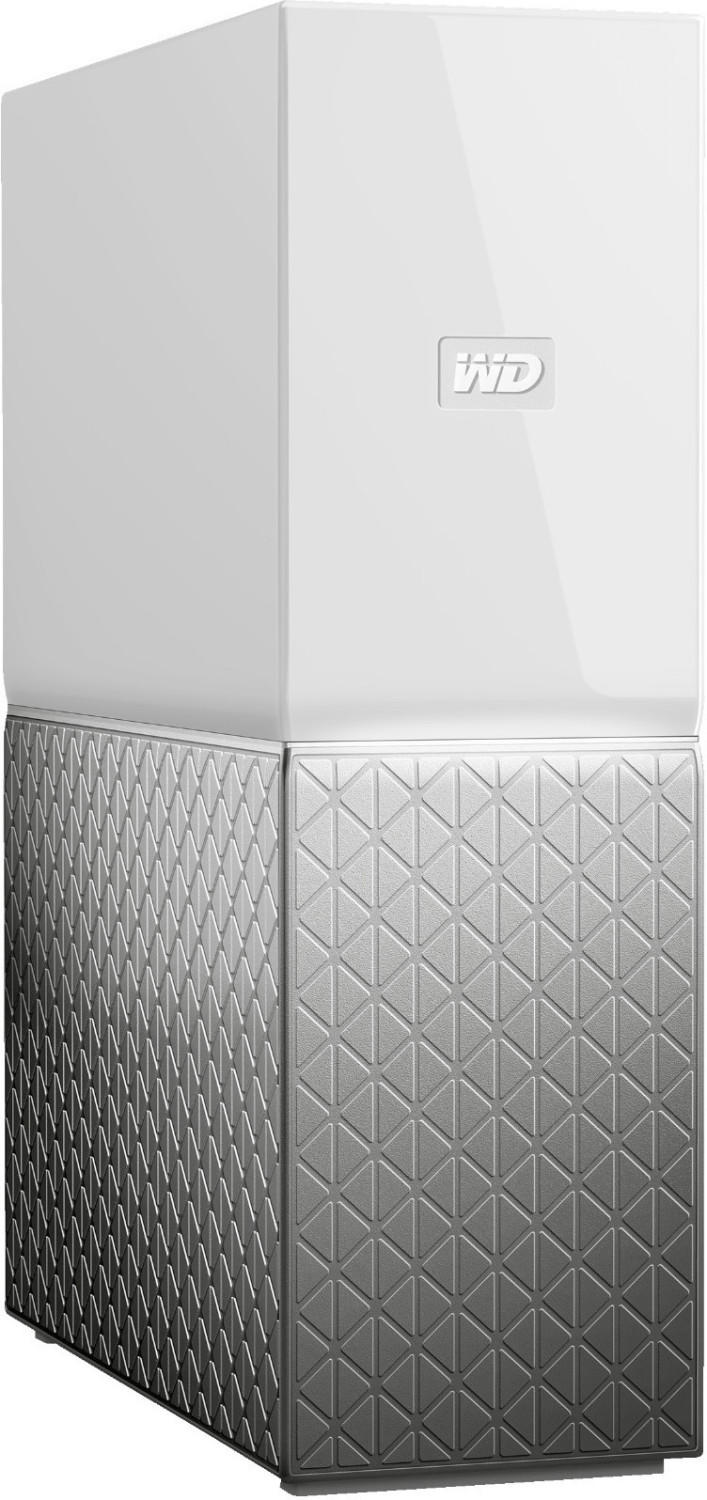
If you require robust backup and syncing features for a large enterprise or data-intensive applications, the QNAP TS-973AX is a high-performance NAS suitable for intensive workloads. It supports hardware-accelerated encryption, RAID protection, and snapshot backups to ensure data integrity and security. With its 10 GbE connectivity and dual M.2 NVMe SSD slots, the TS-973AX delivers exceptional speed and reliability in backup and synchronization tasks.
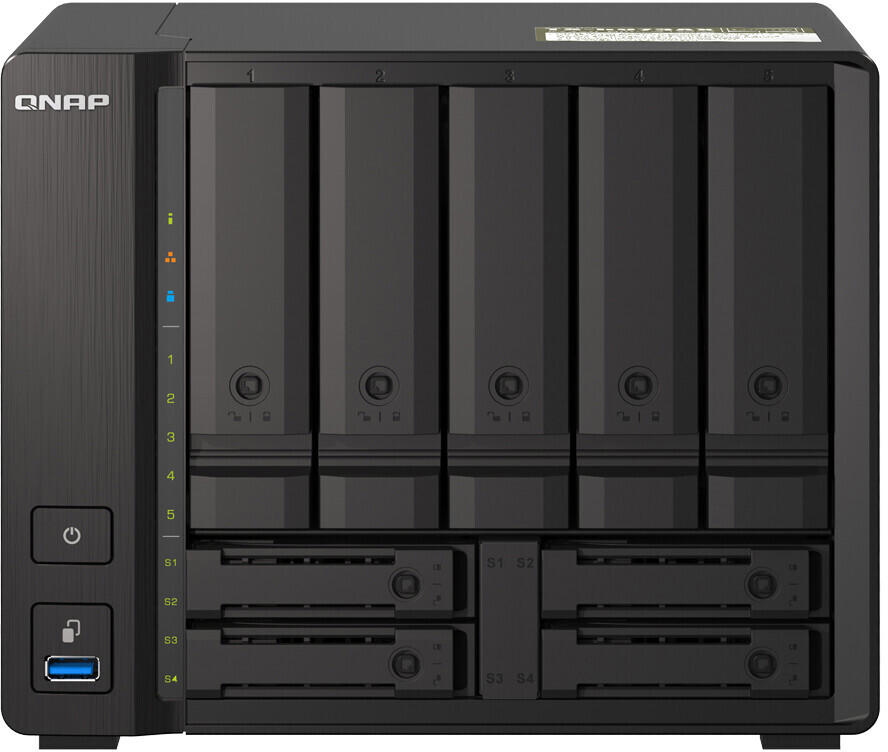
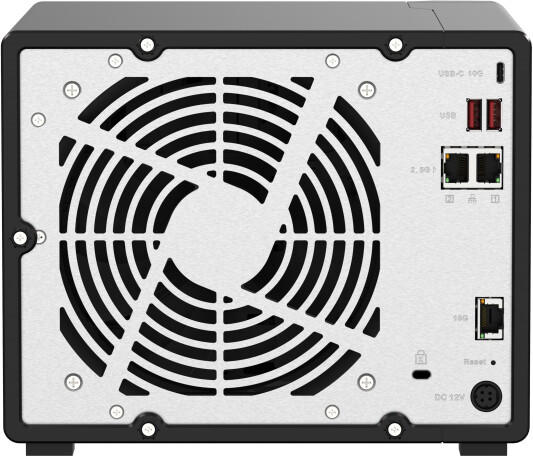
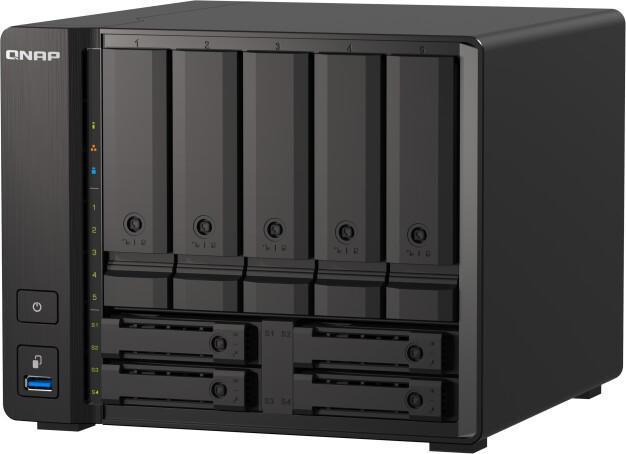
Remote access capabilities
Some NAS servers offer advanced remote access capabilities such as secure VPN connectivity and mobile apps, ensuring seamless access to your files on the go. A great example is the Synology DS220+, which features a WebDAV server, making it possible to access files remotely using popular cloud storage clients like Dropbox, Google Drive, and OneDrive. Moreover, the DS220+ supports numerous mobile applications, including DS File, DS cloud, and DS audio, enabling you to access your files, photos, and music from your smartphone, no matter where you are. Another notable option is the Qnap TS-453D. With its powerful quad-core processor and comprehensive QVPN service, the TS-453D provides secure remote access with dynamic VPN connection capabilities. Its Qfile mobile app allows you to access your data as well as stream multimedia content effortlessly, perfect for those frequently on the go.


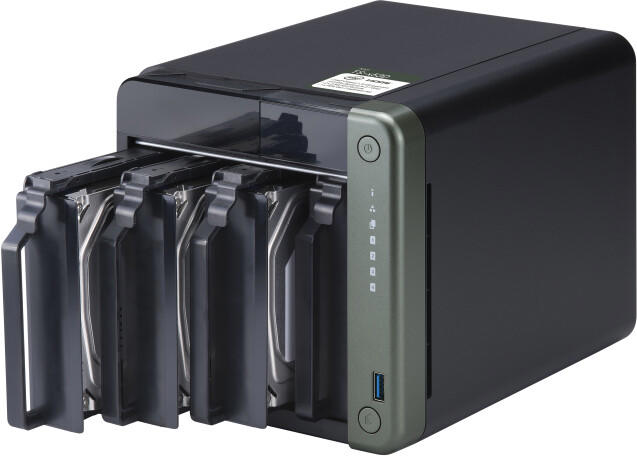
Plug and play installation
This feature allows for easy and effortless setup without the need for any technical expertise or complex configurations. A notable NAS server that offers this plug and play installation is the 'Synology DS220+'. Equipped with a powerful Intel Celeron J4025 dual-core processor and 2GB DDR4 RAM, the DS220+ ensures smooth and efficient operation right out of the box. Another option that guarantees quick and hassle-free setup is the 'Qnap TS-251D'. Its built-in QTS operating system simplifies the whole installation process, while its Intel Celeron J4005 dual-core processor and 4GB DDR4 RAM deliver excellent performance. With both these NAS servers, you can get your storage solution up and running in no time.

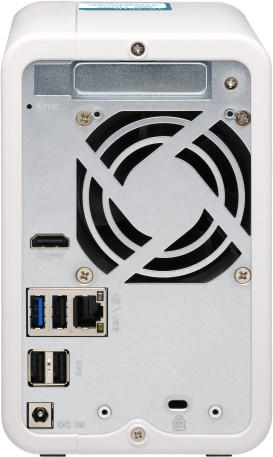
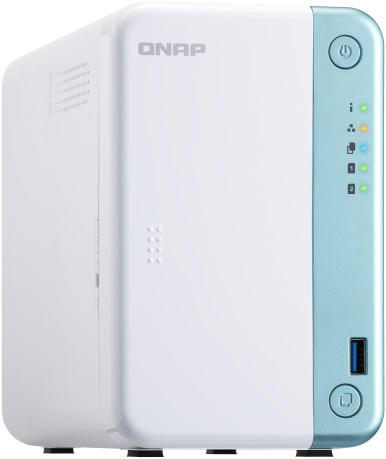
Power consumption
Power consumption is a significant consideration as it not only affects your electricity bill but also the overall ecological impact. Look for NAS servers that offer energy-efficient features and low power consumption ratings. One such product is the Synology DS220+, which boasts a maximum power consumption of only 14.83 Watts during access and 5.62 Watts during hibernation. Another option is the Qnap TS-230, featuring a low-power ARM Quad-Core processor and consuming only 10.38 Watts during operation. Consider NAS servers that are ENERGY STAR certified, like the Western Digital My Cloud EX4100, delivering excellent energy efficiency without compromising performance.
Please note that these products are listed as examples and do not encompass the entire market. Power consumption can vary significantly depending on factors such as configuration, HDD/SSD selection, and usage patterns. Always refer to the manufacturer's specifications for precise power consumption values.
Fan noise
No one wants a server that sounds like a jet engine constantly running in the background. One option to consider is the Synology DiskStation DS220j, which is known for its quiet operation with a noise level of only 19.9 dB(A). This compact NAS server is designed for home use and provides storage for personal multimedia files. Another option is the QNAP TS-251D, which also boasts a low noise level of only 15.8 dB(A) thanks to its smart fan design. It offers expandable storage, supports streaming media, and is a suitable choice for both home and small office environments. For those seeking even quieter operation without compromising on performance, high-end NAS servers like the Asustor AS6604T and QNAP TS-977XU-RP utilize larger fan units, such as 120mm fans, that dissipate heat more efficiently, resulting in reduced noise levels.



Security features (encryption, password protection)
Many NAS servers come equipped with encryption capabilities that protect your files from unauthorized access and tampering. For example, the Synology DS1621+ offers AES-NI hardware encryption, providing robust data encryption while maintaining optimal system performance. Another excellent option is the QNAP TS-453D, which supports AES 256-bit encryption for data at rest, as well as SSL/TLS encryption for secure remote access.
In addition to encryption, password protection is essential for safeguarding your NAS server. Look for models like the Western Digital My Cloud Pro PR4100, which ensures data privacy with secure access control through user authentication mechanisms. The PR4100 also offers provides abundant customization options for setting user-level passwords. Similarly, the ASUSTOR AS6604T NAS server features different layers of security, including the ability to enforce password policies for creating strong passwords, further reinforcing the protection of your valuable data.
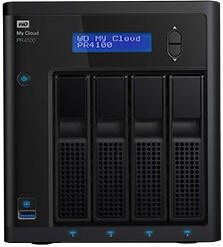
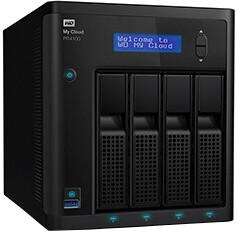
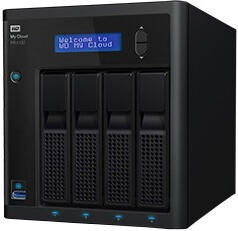
Cloud integration
Cloud integration allows you to easily backup and synchronize your data to popular cloud storage services, such as Amazon S3, Microsoft Azure, or Google Drive. This feature ensures that your important files are securely stored in the cloud and can be accessed from anywhere.
Some NAS servers with excellent cloud integration options include the Synology DS920+, which offers a Cloud Sync feature that allows you to sync your NAS data with multiple cloud services. It also supports various cloud storage providers such as Dropbox, Google Drive, and Microsoft OneDrive. Another great option is the QNAP TS-453D, which provides native support for cloud backup to popular cloud services like Microsoft Azure, Amazon S3, and Backblaze B2. With its QuDedup technology, it helps reduce storage needs with deduplication and compression techniques without sacrificing data integrity.
Mobile apps support
Mobile apps support
When choosing the best and right NAS server, it is crucial to consider mobile apps support. This feature allows users to conveniently access and manage their NAS devices from their mobile devices, ensuring a seamless and user-friendly experience. Some notable NAS servers that excel in mobile apps support include Synology DS920+, Qnap TS-453Be, and Western Digital My Cloud EX2 Ultra.
The Synology DS920+ is equipped with the versatile and intuitive DiskStation Manager (DSM) operating system, which comes with a comprehensive suite of mobile apps, including DS cam for managing IP cameras, DS photo for photo storage and sharing, and DS audio for streaming audio files. These apps provide seamless integration with popular mobile platforms such as iOS and Android, offering a practical and efficient way to access and control your NAS from anywhere.
The Qnap TS-453Be features the QTS operating system, which also comes with a wide range of mobile apps. With the Qfile app, users can easily access, manage, and share files stored on their NAS right from their mobile device. Additionally, the Qsync app allows for real-time file synchronization across multiple devices, ensuring that you always have the most up-to-date files at your fingertips.


Lastly, the Western Digital My Cloud EX2 Ultra utilizes the My Cloud mobile app, which provides a simple and straightforward interface for accessing files, photos, and videos stored on the NAS. This app offers seamless integration with mobile devices, allowing users to quickly and easily upload, download, and stream their files on-the-go.
DLNA or media streaming capabilities
DLNA (Digital Living Network Alliance) allows you to conveniently share and stream media files such as movies, music, and photos across various devices in your home network. When selecting a NAS Server with DLNA support, it is important to ensure that it meets your specific requirements.
In the high-end segment, one of the top choices is the Synology DS920+ NAS Server. This powerful NAS Server supports DLNA, allowing you to stream media seamlessly to your smart TV, gaming console, or media player. It comes equipped with a quad-core processor and supports 4K Ultra HD transcoding, ensuring smooth playback of high-resolution videos.
For those on a stricter budget, the Western Digital My Cloud Home NAS Server is a suitable option. This affordable NAS Server also supports DLNA, making it easy to stream media to your devices. It offers various storage options up to 20TB and can be accessed remotely with a user-friendly mobile app.


Remember to thoroughly review the specifications of each product to ensure their compatibility with your devices and specific streaming requirements.
Compatibility with smart home devices
This ensures seamless integration and functionality between your NAS server and other IoT devices in your smart home ecosystem. Look for NAS servers that support popular protocols such as Zigbee, Z-Wave, or Wi-Fi, which are commonly used by smart home devices. For instance, products like the Synology DS220+ and the Qnap TS-453Be are excellent options as they both support a wide range of smart home devices through their compatible protocols and can effortlessly streamline their data and communications with your other connected devices. These NAS servers are also capable of running sophisticated home automation software like Home Assistant and OpenHAB, allowing you to easily control and monitor your smart home devices from a central hub. Overall, compatibility with smart home devices is an essential consideration when choosing the best NAS server for your home.
Third-party app support
These servers offer a wide range of applications that can enhance the functionality and versatility of the network storage system. For instance, the Qnap TS-453Be is renowned for its extensive support for third-party apps through its QTS operating system. With over a hundred apps available from developers and the Qnap App Center, users can customize and optimize their NAS server to suit their specific needs. Additionally, the support for virtualization solutions like Virtualization Station and Container Station further expands the third-party app compatibility of the Qnap TS-453Be.
Another notable NAS product that excels in third-party app support is the Synology DiskStation DS920+. Powered by Synology's DiskStation Manager (DSM), this NAS server offers an extensive library of third-party applications through its Package Center. DSM enables users to install and manage apps such as surveillance systems, file synchronization tools, and media servers. Furthermore, features like Docker and Virtual Machine Manager provide strong support for running virtual environments and further expanding the potential of third-party app usage on the Synology DiskStation DS920+.
Compatibility with popular software (such as Plex)
Plex is a widely used media server software that allows you to catalog and stream your media collection. For seamless and optimized performance, it is crucial to ensure that your NAS server is compatible with Plex.
One such product that is highly recommended for Plex compatibility is the Synology DiskStation DS220+. This NAS server is powered by a 2-core processor and has 2GB of DDR4 RAM, providing a reliable and efficient performance for running Plex. Additionally, it supports hardware acceleration, which helps to transcode and stream high-quality media files without any playback issues.
Another great option that is known for its compatibility with Plex is the QNAP TS-453Be. This NAS server is equipped with a powerful Intel Celeron J3455 quad-core processor and 4GB DDR3L RAM (expandable up to 8GB), ensuring smooth streaming and transcoding of media files. It also supports Plex's hardware transcoding feature, allowing you to utilize the full potential of your NAS server.
For more budget-friendly options, the Western Digital My Cloud EX2 Ultra is a good choice. It offers a simple and intuitive user interface, along with compatibility with Plex to conveniently organize and access your media collection. It is available in various storage capacities, ranging from 4TB to 20TB, catering to different storage needs.




Choosing a NAS server that is compatible with popular software like Plex, such as the Synology DiskStation DS220+, QNAP TS-453Be, or Western Digital My Cloud EX2 Ultra, will ensure a smooth and enjoyable media streaming experience.
Virtualization support
This feature allows you to run multiple virtual machines on the NAS server, increasing its versatility and functionality. The Synology DiskStation DS920+ is an excellent option in this regard, as it offers a powerful CPU and 4GB of RAM, ensuring smooth virtual machine performance. Additionally, it supports popular virtualization technologies such as VMware vSphere, Microsoft Hyper-V, and Citrix XenServer.
Another great option is the QNAP TS-453D, which is equipped with an Intel Celeron quad-core processor and 4GB of DDR4 RAM. It provides support for virtualization through the QTS operating system, allowing you to easily create and manage virtual machines on the NAS server. The TS-453D also supports VMware vSphere, Microsoft Hyper-V, and Citrix XenServer, making it a versatile choice for virtualization needs.
For more advanced virtualization requirements, the Synology DiskStation DS1621+ is worth considering. It features a powerful AMD Ryzen quad-core processor with hardware encryption acceleration and up to 32GB of RAM. This NAS server can handle intensive virtual machine workloads with ease and supports VMware vSphere, Microsoft Hyper-V, and Citrix XenServer for virtualization purposes.
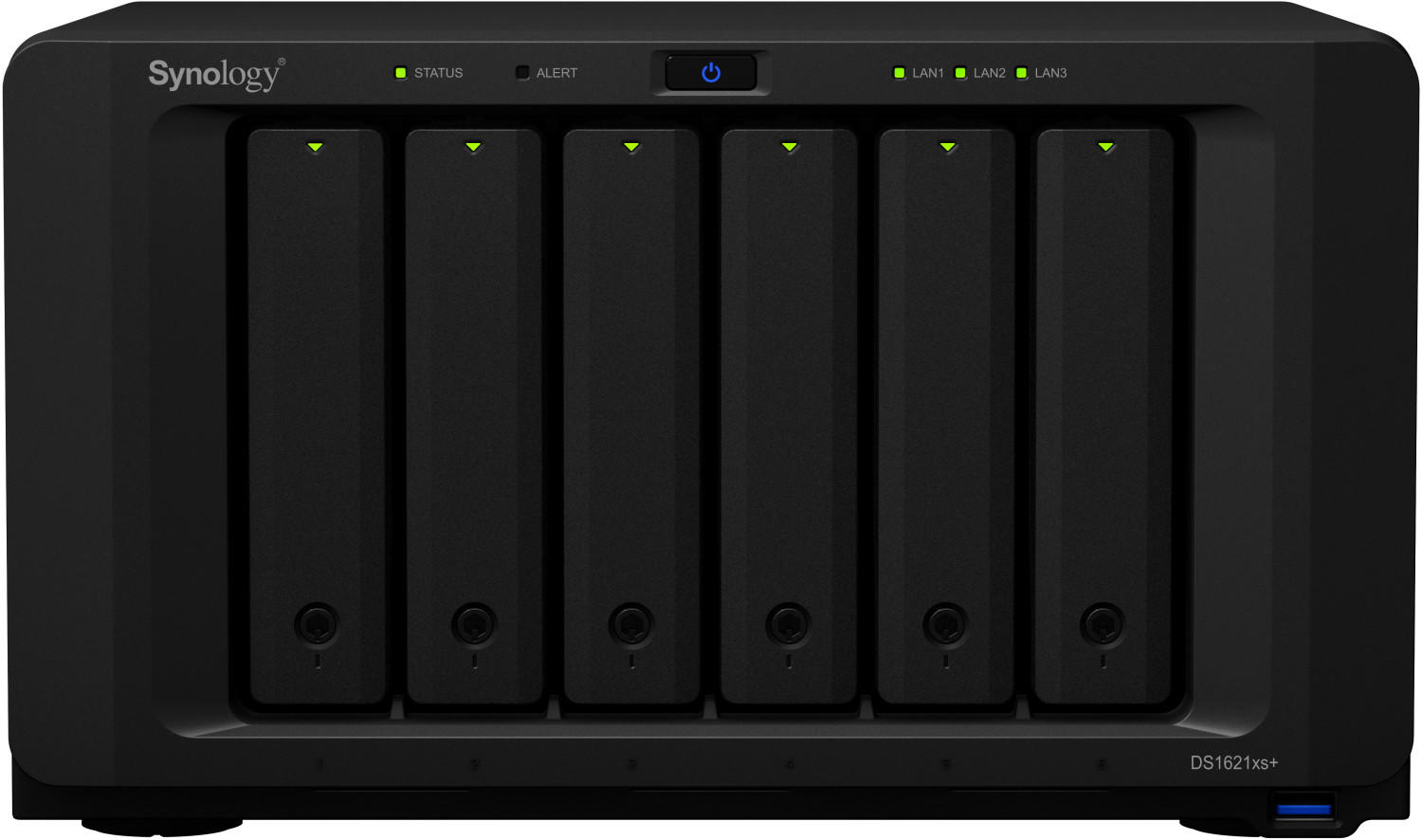
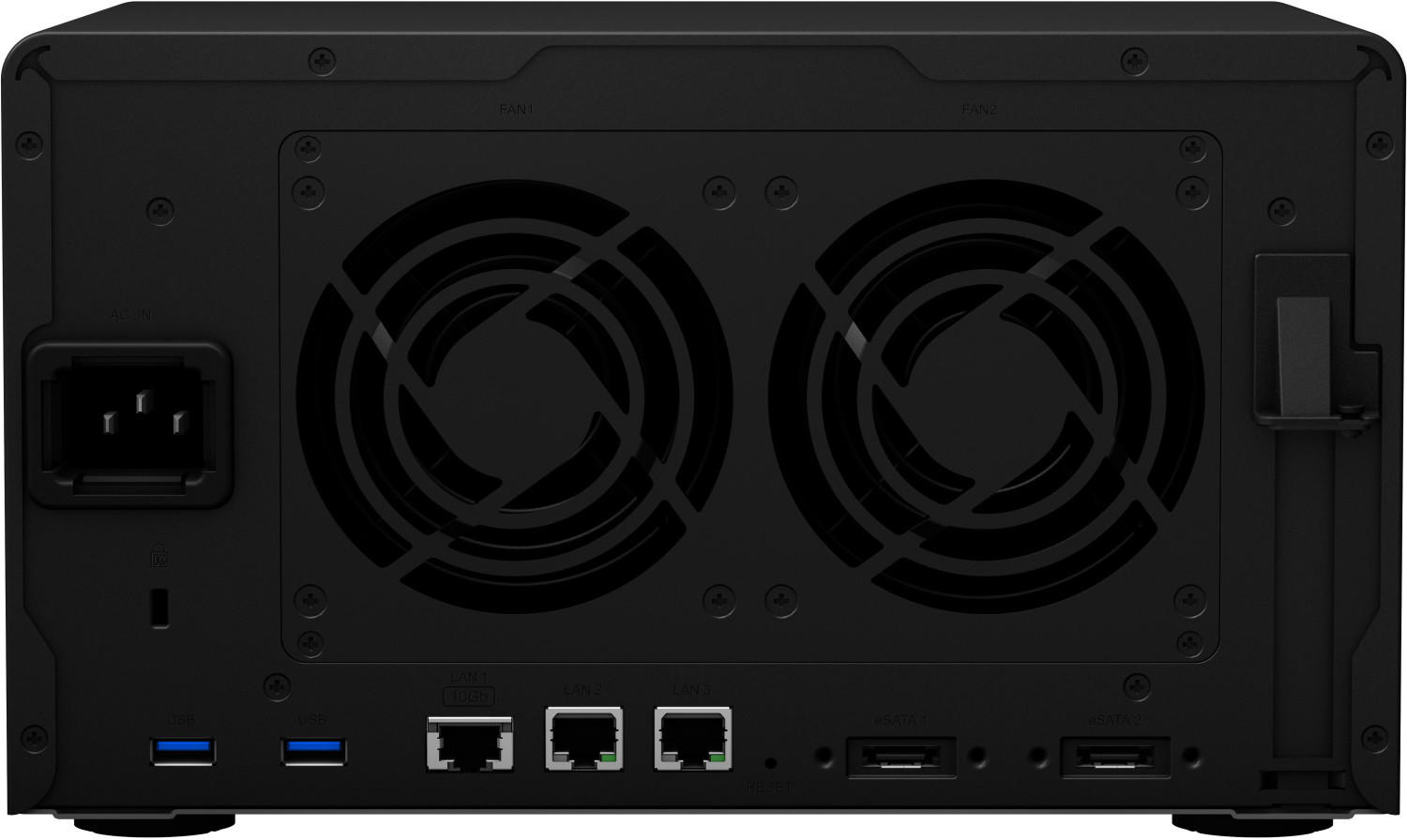
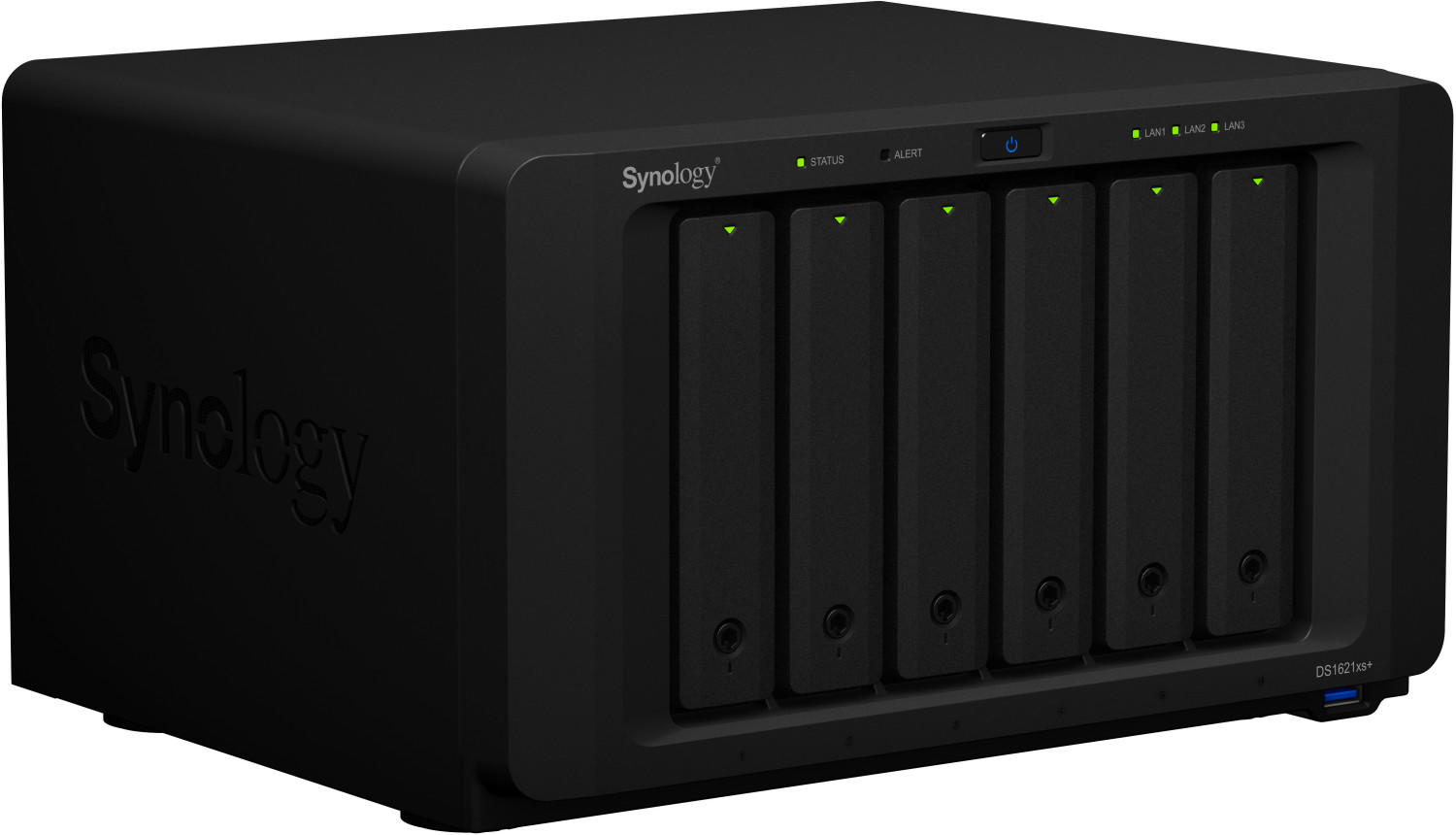
When choosing a NAS server with virtualization support, it is important to consider factors such as CPU performance, RAM capacity, and compatibility with popular virtualization technologies in order to find the best and right fit for your specific needs.
Scalability options
Look for NAS servers that offer expandable storage capability through additional hard drive bays or external expansion units. For example, the Synology DiskStation DS2419+ is a high-end NAS server that supports up to twelve 3.5" or 2.5" SATA hard drives, providing ample room for future storage upgrades. Another option to consider is the QNAP TS-453D, a versatile NAS server that offers the ability to connect up to nine additional expansion enclosures to accommodate larger storage pools. These scalability options ensure that your NAS server can grow alongside your storage requirements, saving you the hassle of migrating to a new system in the future.
Data protection features (snapshot, replication)
One essential feature is the ability to take snapshots of your data. Snapshot technology allows you to capture the state of your files and folders at a specific point in time, providing a means to restore data to a previous version in case of accidental deletion or corruption. The Synology DS920+ is an excellent example of a NAS server that supports comprehensive data protection features, including snapshot technology.
Another critical data protection feature to consider is data replication. With replication, you can create multiple copies of your data across different NAS servers, providing redundancy and disaster recovery options. The QNAP TS-451D2 is an ideal choice for a NAS server with stellar data replication capabilities.
There are various products on the market grouped into different segments based on their data protection features. In the entry-level segment, the Western Digital My Cloud EX2 Ultra and the Asustor AS3202T offer snapshot and replication capabilities suitable for small businesses. Moving up to the mid-range segment, the Synology DS1819+ and the Buffalo TeraStation 5810DN deliver robust snapshot and replication features for larger organizations.

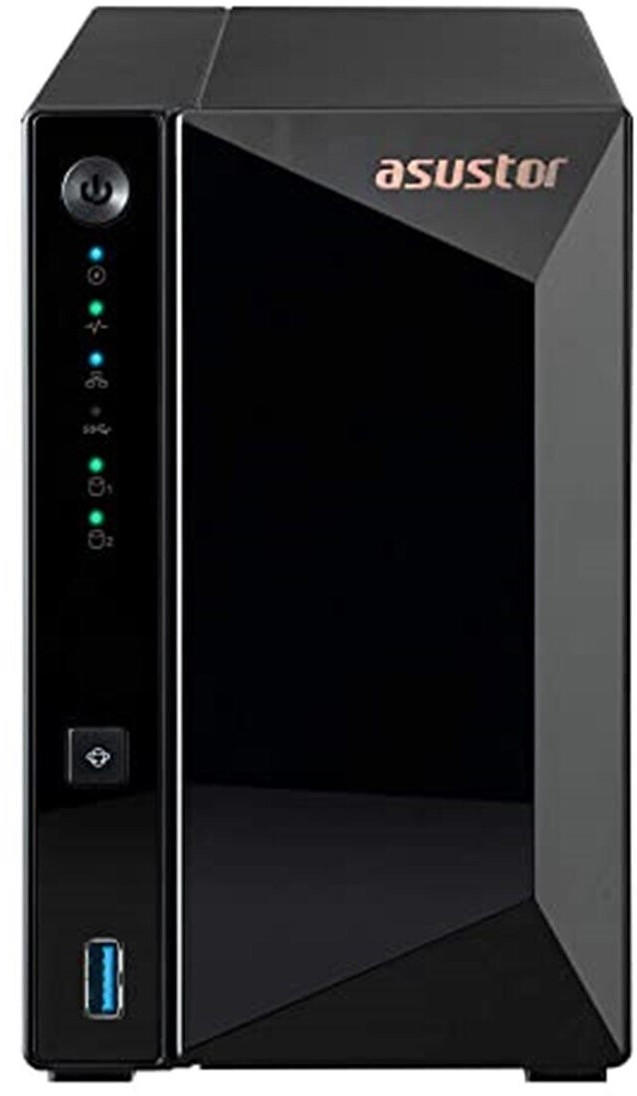
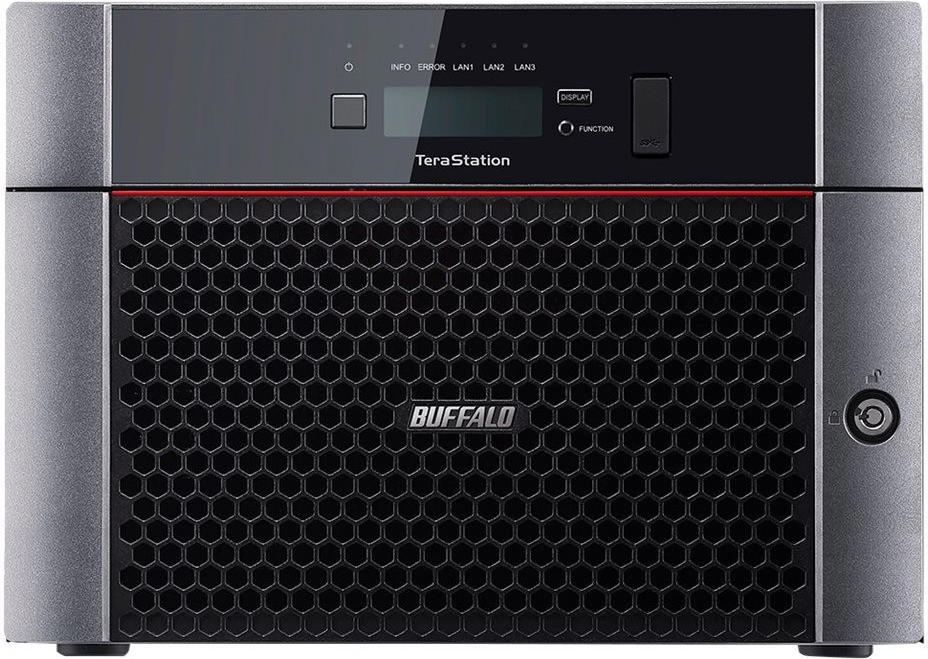
Support for multiple users or user groups
A NAS server that offers this capability allows multiple users to access the server simultaneously, ensuring smooth operation and efficient collaboration. One such example is the Synology DiskStation DS920+. This NAS server supports up to 401 concurrent connections, ideal for small to medium-sized businesses and workgroups. It also features a 64-bit Quad-core processor, which enhances multitasking capabilities and improves overall performance. For larger organizations with high user demands, the QNAP TVS-1282T3 would be a suitable choice. This powerful NAS server supports up to 962 concurrent connections and is equipped with an Intel Core i7 processor, providing exceptional processing power and reliability for multi-user environments.
Synology DiskStation DS920+:- Maximum concurrent connections: 40
- Processor: 64-bit Quad-core 1.5 GHz
QNAP TVS-1282T3:- Maximum concurrent connections: 96
- Processor: Intel Core i7 3.3 GHz
Support for remote management
This feature allows users to manage and access their NAS server from any location, providing convenient accessibility and control. Some NAS servers that offer exceptional support for remote management include the Synology DS920+ and the QNAP TS-253D-4G.
The Synology DS920+ NAS Server boasts an easy-to-use web-based user interface called DiskStation Manager (DSM), which allows users to remotely manage their NAS server effortlessly. With DSM's intuitive design, users can monitor system status, manage storage resources, and perform data backups remotely. Furthermore, the DS920+ is equipped with advanced security protocols, including support for multi-factor authentication, ensuring secure remote access to the server.
On the other hand, the QNAP TS-253D-4G NAS Server also offers seamless remote management capabilities. It features the QTS operating system, which can be accessed remotely using QNAP's Qmanager mobile app or through the web-based interface provided. Users can easily monitor system status, configure network settings, and manage applications remotely with just a few taps or clicks. Additionally, the TS-253D-4G supports virtual private network (VPN) connections, ensuring secure and encrypted remote access to the NAS server.
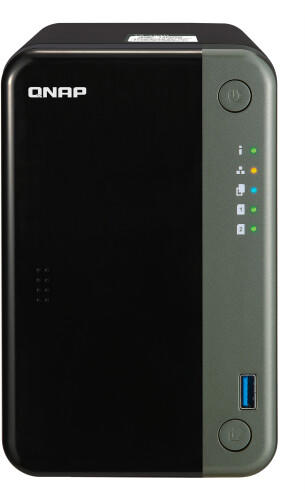
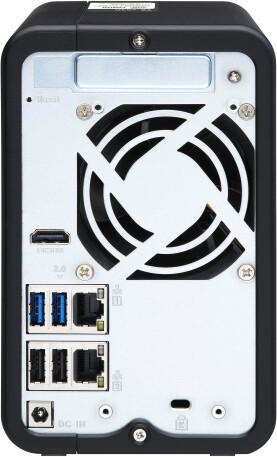
These NAS servers exemplify the importance of support for remote management and provide excellent options for anyone looking to have convenient and secure control over their NAS system.
Design and aesthetics
Some NAS servers, such as the Synology DS920+, QNAP TS-453D, and Asustor AS6208T, feature a sleek and modern design with a compact form factor, making them ideal for a minimalist setup. These models boast a black or silver metal chassis with clean lines, elegant finishes, and LED indicators that add a touch of sophistication to your workspace. Furthermore, the WD My Cloud EX2 Ultra and Buffalo LinkStation 520DN offer a more traditional design with a simple and sturdy build, perfect for a professional setting or a home office. Regardless of your preference, selecting a NAS server with a design that aligns with your desired aesthetic is a vital consideration.

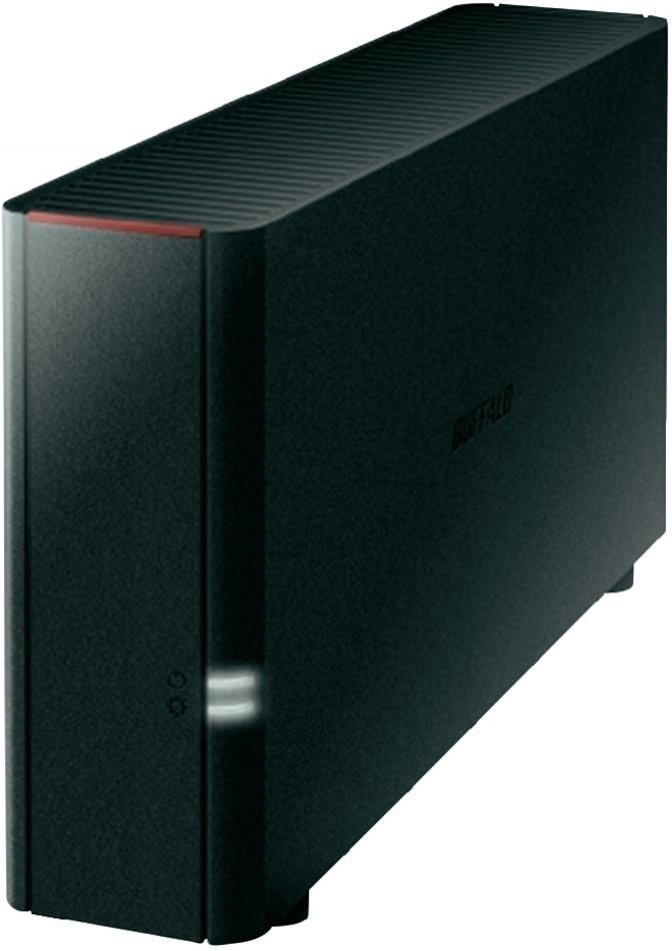
Size and form factor
NAS servers are available in various sizes, ranging from compact desktop units to larger rack-mounted models. If you have limited space, a compact NAS server such as the Synology DiskStation DS220+ or Qnap TS-251D would be ideal options. These NAS servers are designed to occupy minimal space while still providing excellent storage capacity and performance. On the other hand, if you require a higher capacity for storage, a larger rack-mounted NAS server like the QNAP TS-1685 with its 16-bay design may be a better fit. Understanding your available space and storage requirements will help you determine the necessary size and form factor of your NAS server.


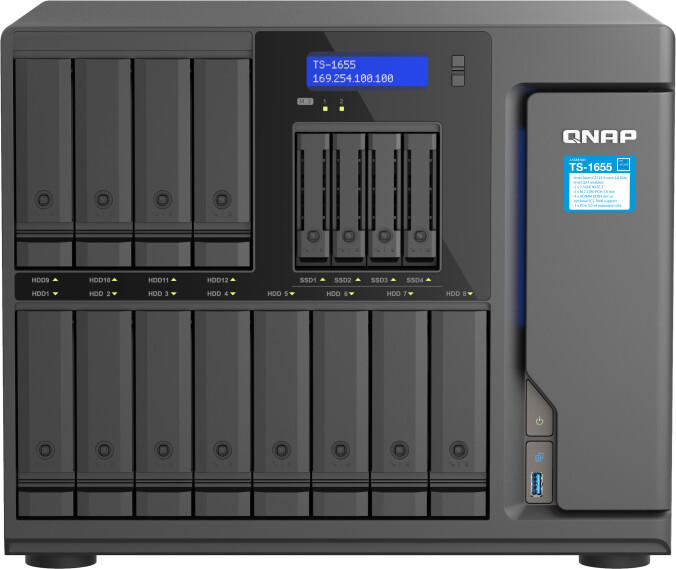
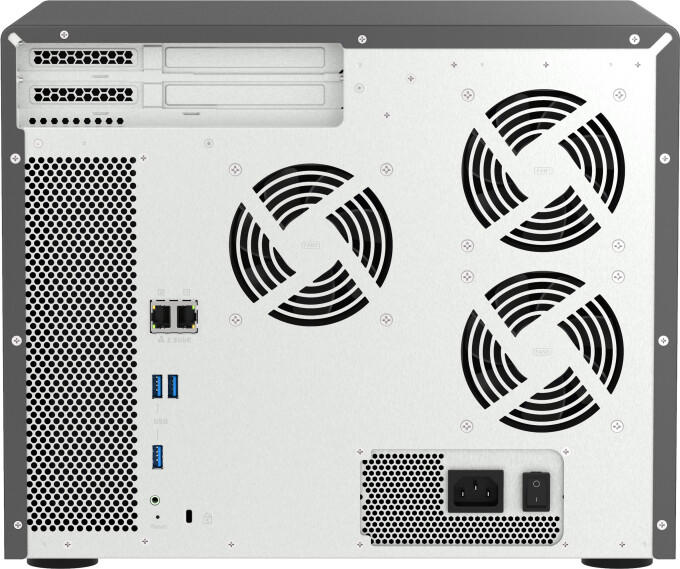
Price
The market offers a range of options catering to various budgets. For those who value affordability, the 'WD My Cloud Home' is an excellent choice. Available in capacities up to 20TB, the My Cloud Home allows easy connection and access to your files from anywhere. Another affordable option is the 'Synology DS220j', which provides a budget-friendly solution without compromising on performance. With its dual-core processor and 512 MB RAM, the DS220j offers smooth file transfers and efficient multitasking.
For those willing to invest a bit more, the 'QNAP TS-253D' stands out. This NAS server boasts impressive hardware specifications like a quad-core processor, 4 GB RAM (upgradable to 8 GB), and support for 4K HDMI output. In the higher price range, the 'Synology DS1019+' is worth considering for its powerful quad-core Intel processor and expandable storage capacity of up to 140 TB, making it suitable for the needs of professional photographers, videographers, and small businesses.


Variety of brands
Each brand brings its unique set of pros and cons, allowing users to select a product that meets their specific requirements and preferences.
Synology, for example, is a popular brand known for its user-friendly interface and robust features. Their DS220+ NAS Server offers a dual-core processor, 2GB DDR4 RAM, and two drive bays, providing a blend of performance and storage capacity for home users.
Qnap is another brand that provides a wide range of NAS Servers suitable for both personal and office use. The TS-453Be is a notable product, offering a quad-core processor, 2GB/4GB DDR3L RAM, and four drive bays. It also includes a PCIe slot for adding additional capabilities like SSD caching or a 10GbE network card.
Similarly, Western Digital's My Cloud EX2 Ultra is an affordable option with its dual-core processor, 1GB DDR3 RAM, and two drive bays. It is designed for simple setup and backup, making it an ideal choice for beginners or those on a budget.
Other notable brands in the market include Asustor, Netgear, and Buffalo, each with their own line of NAS Servers catering to different user requirements.
Remember, when considering the variety of brands, it's essential to delve into the specifications and compare the features, performance, and unique offerings of each brand to find the NAS Server that best suits your needs.